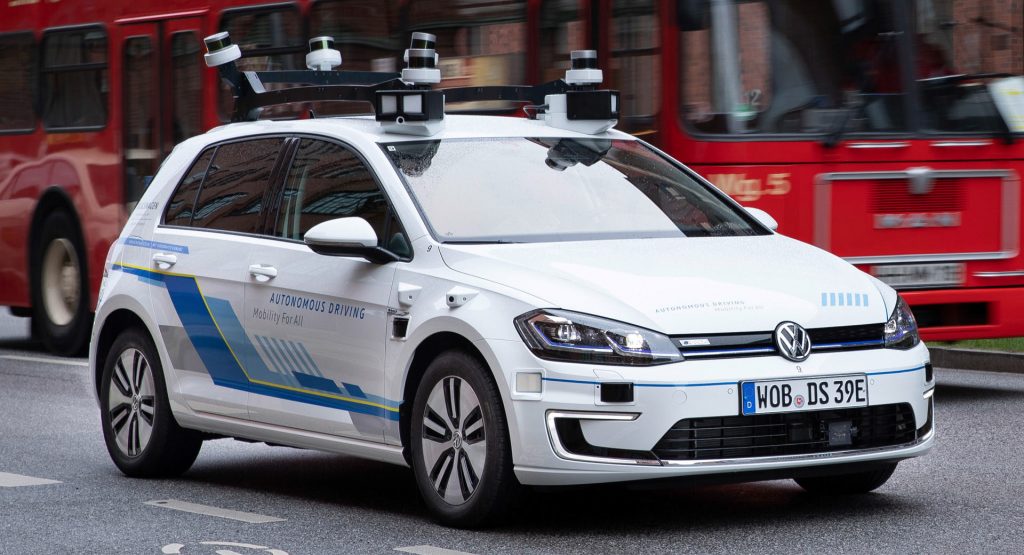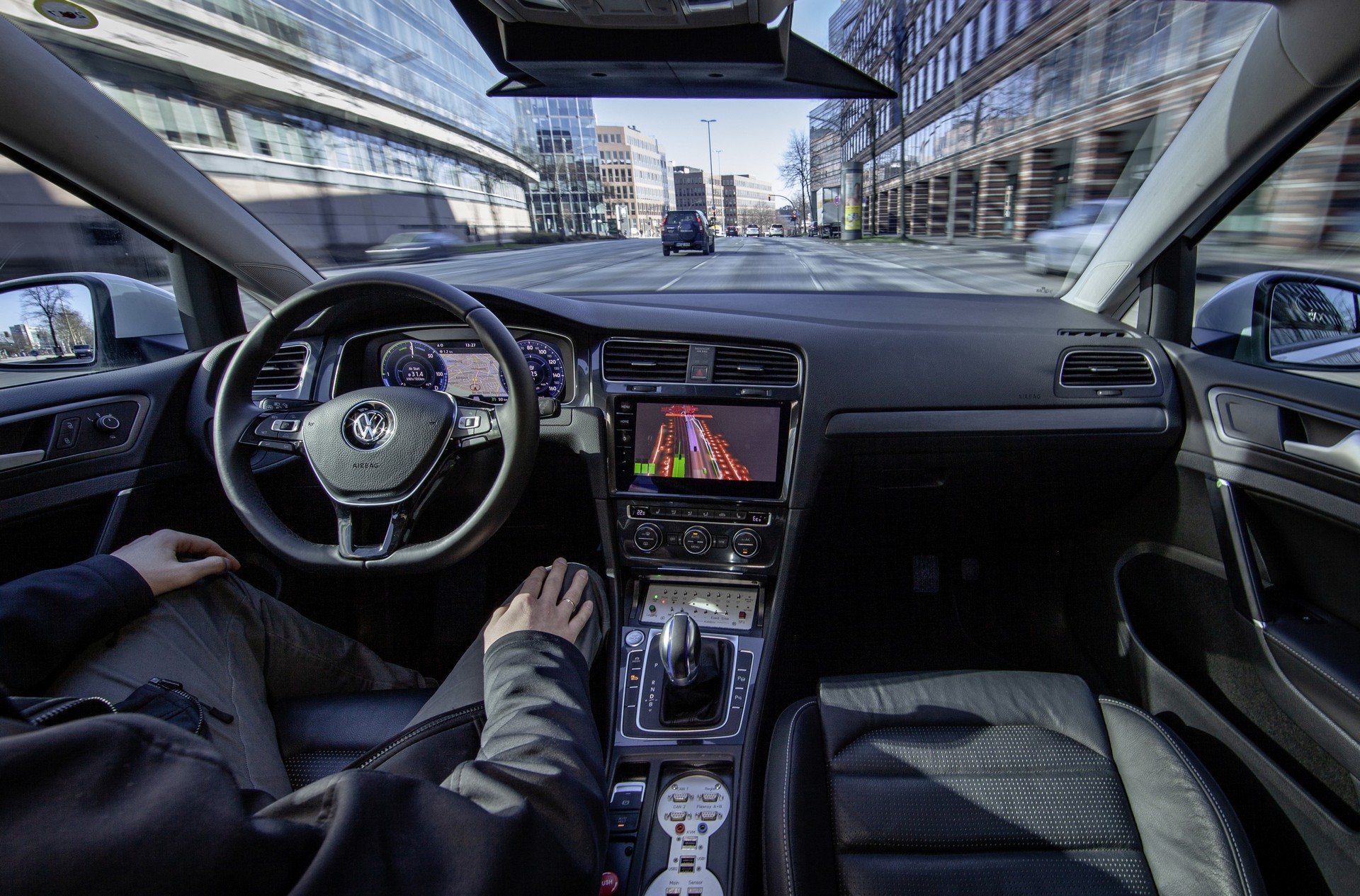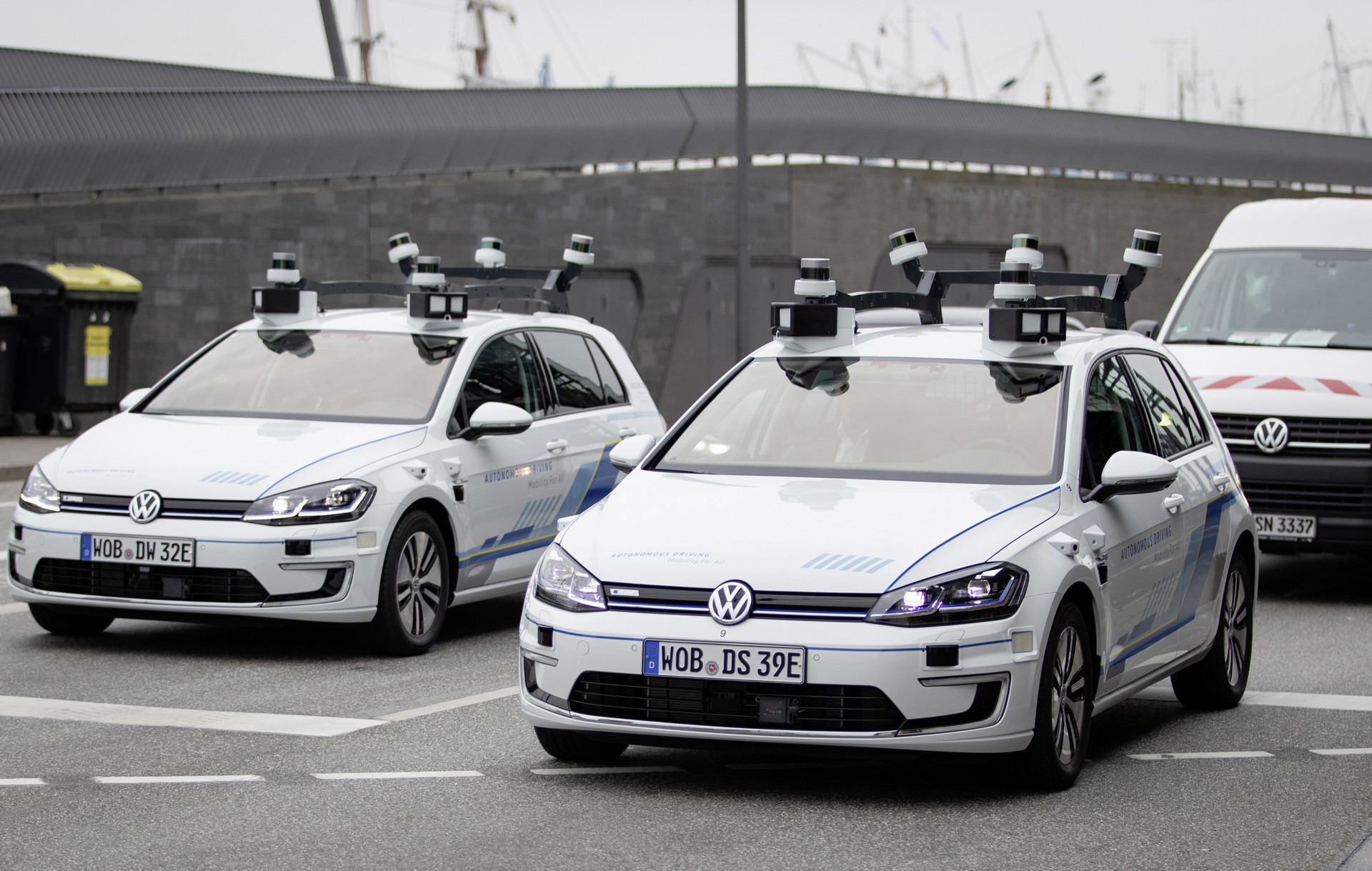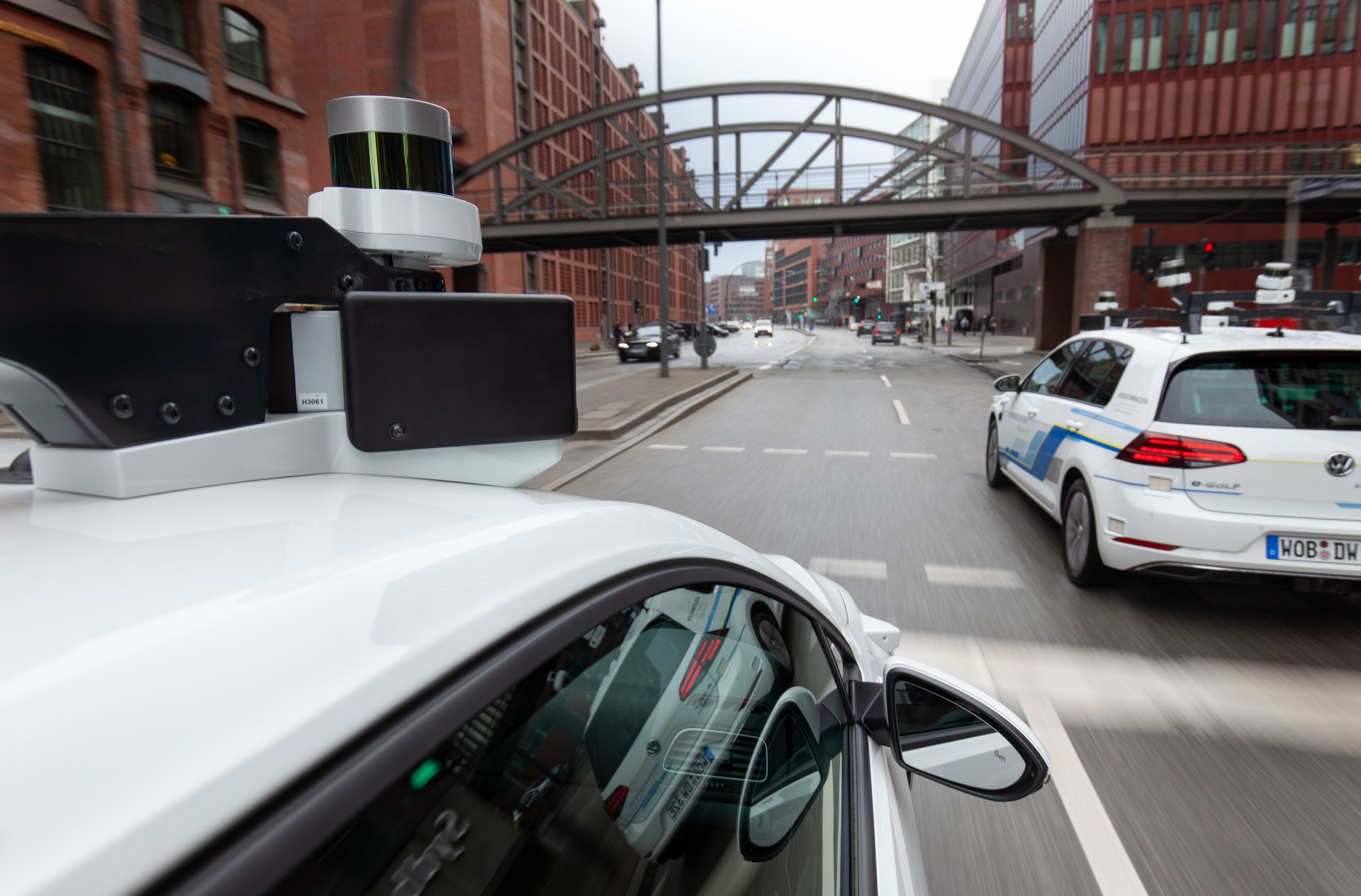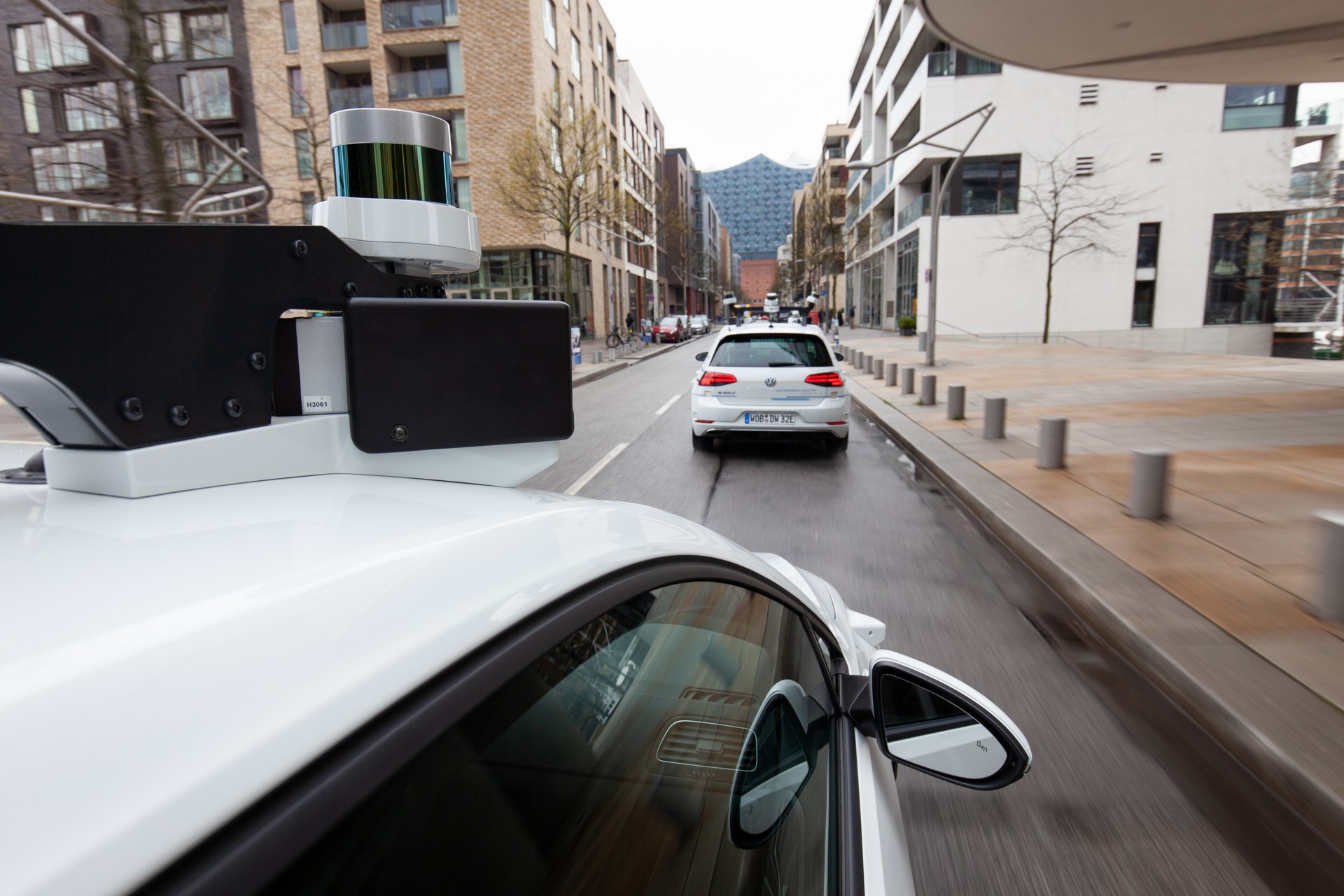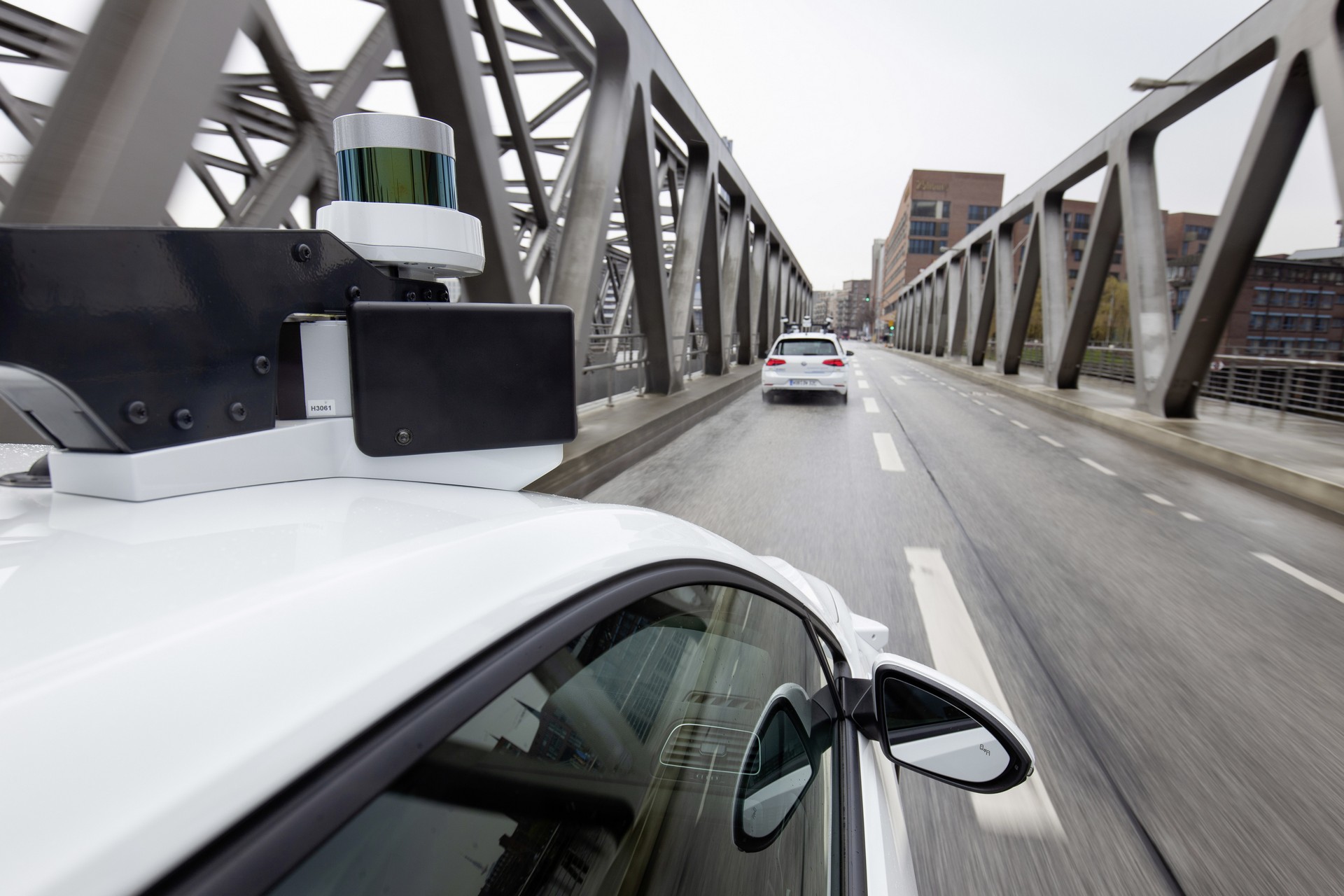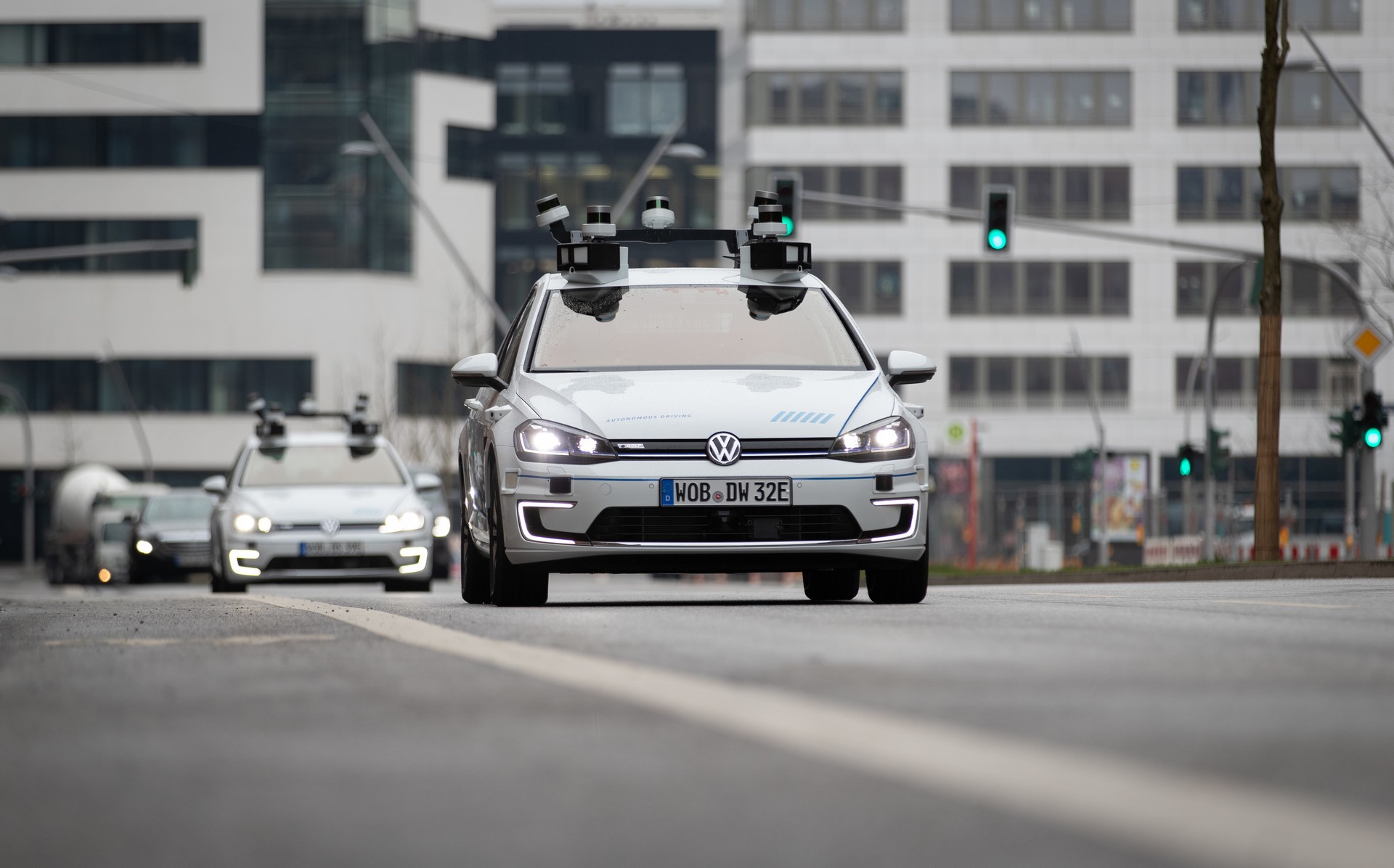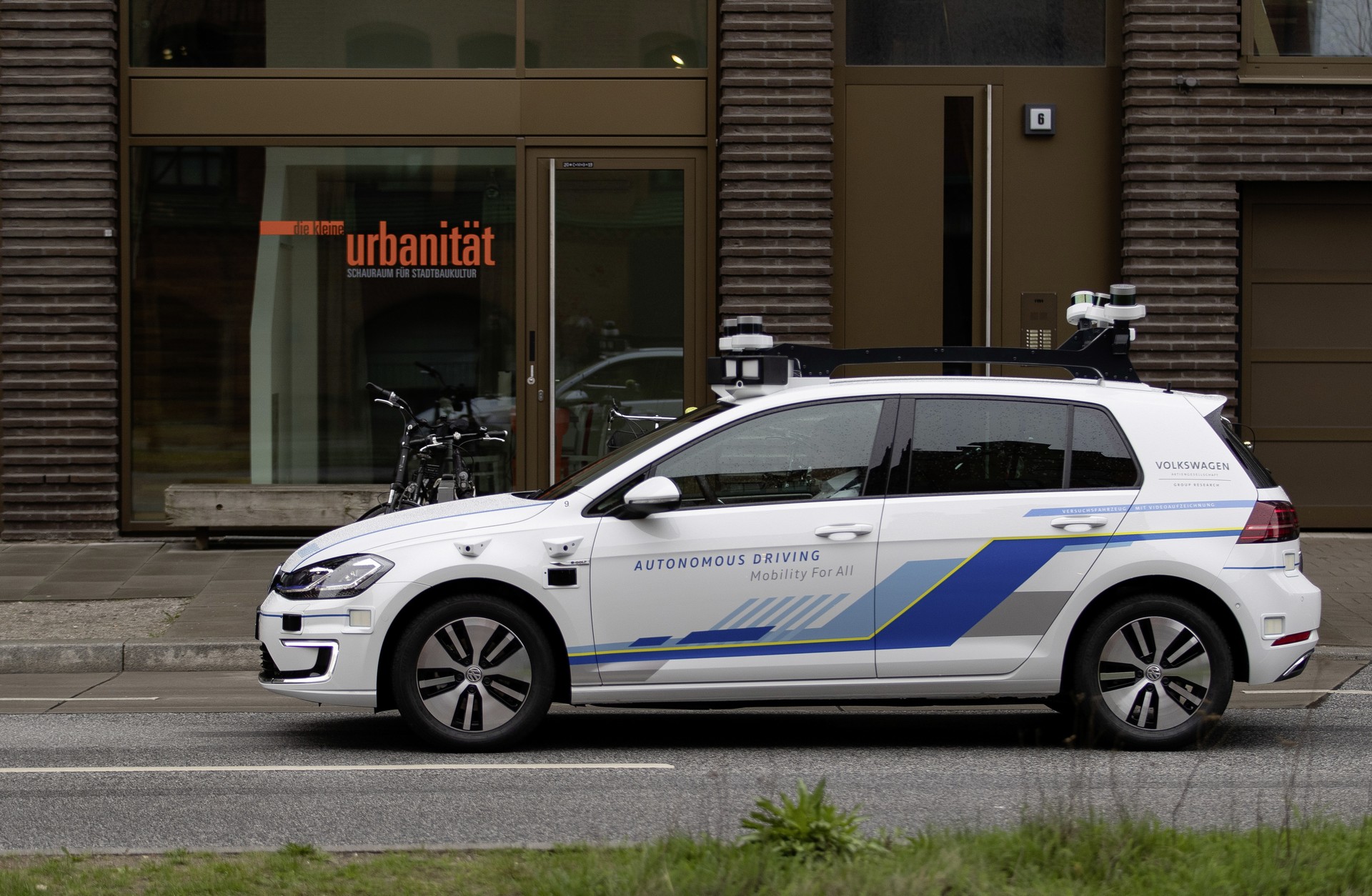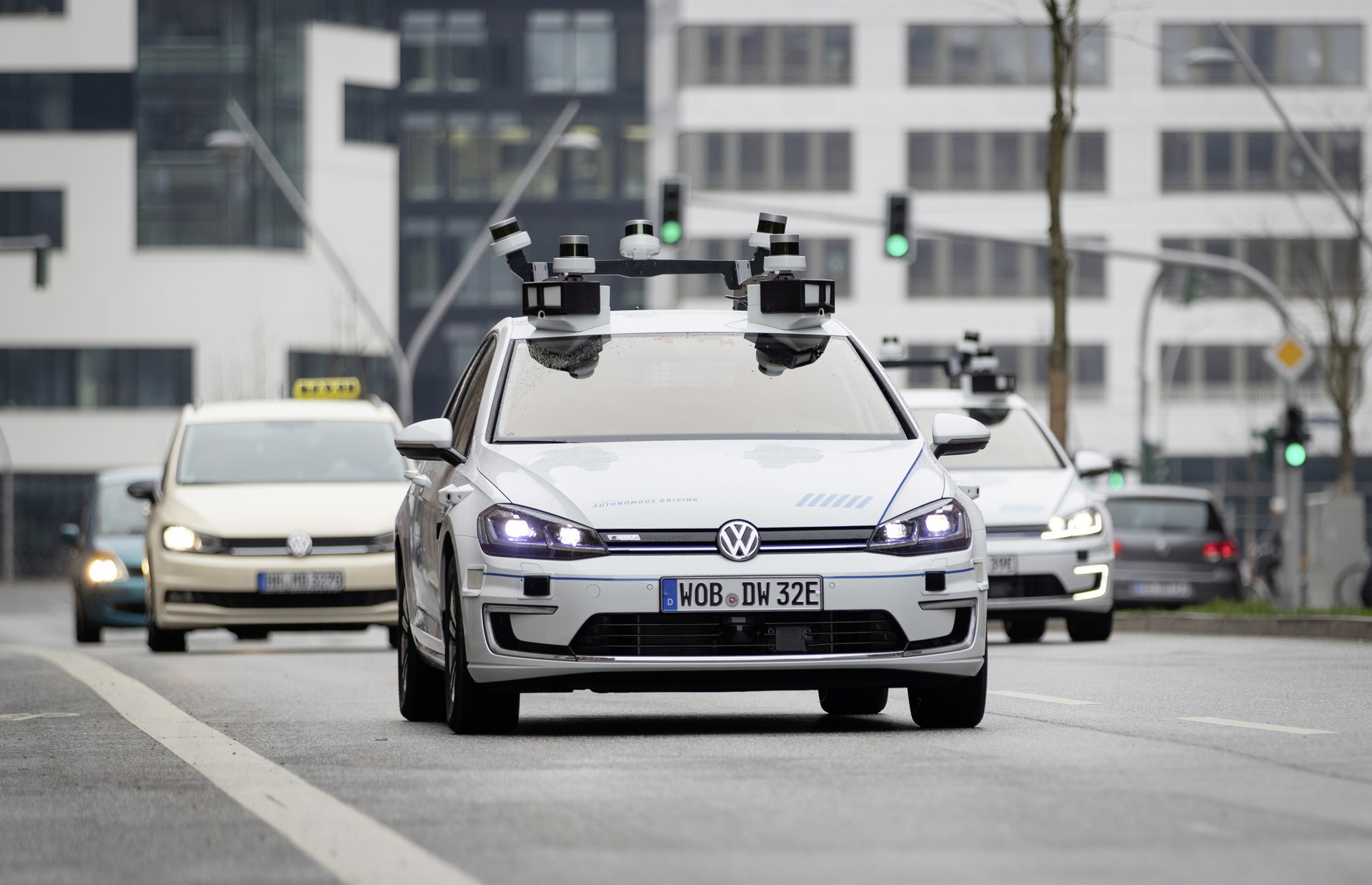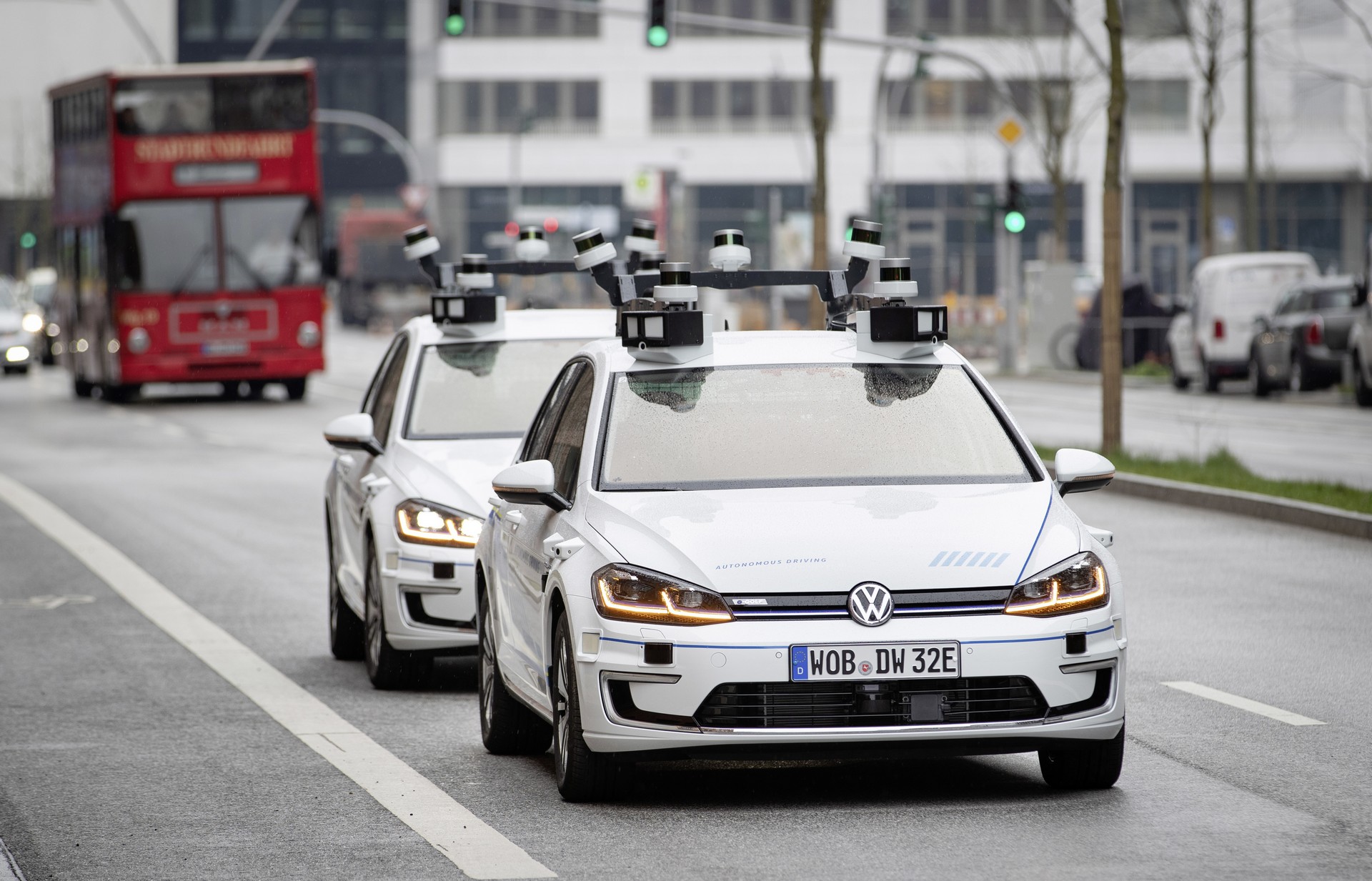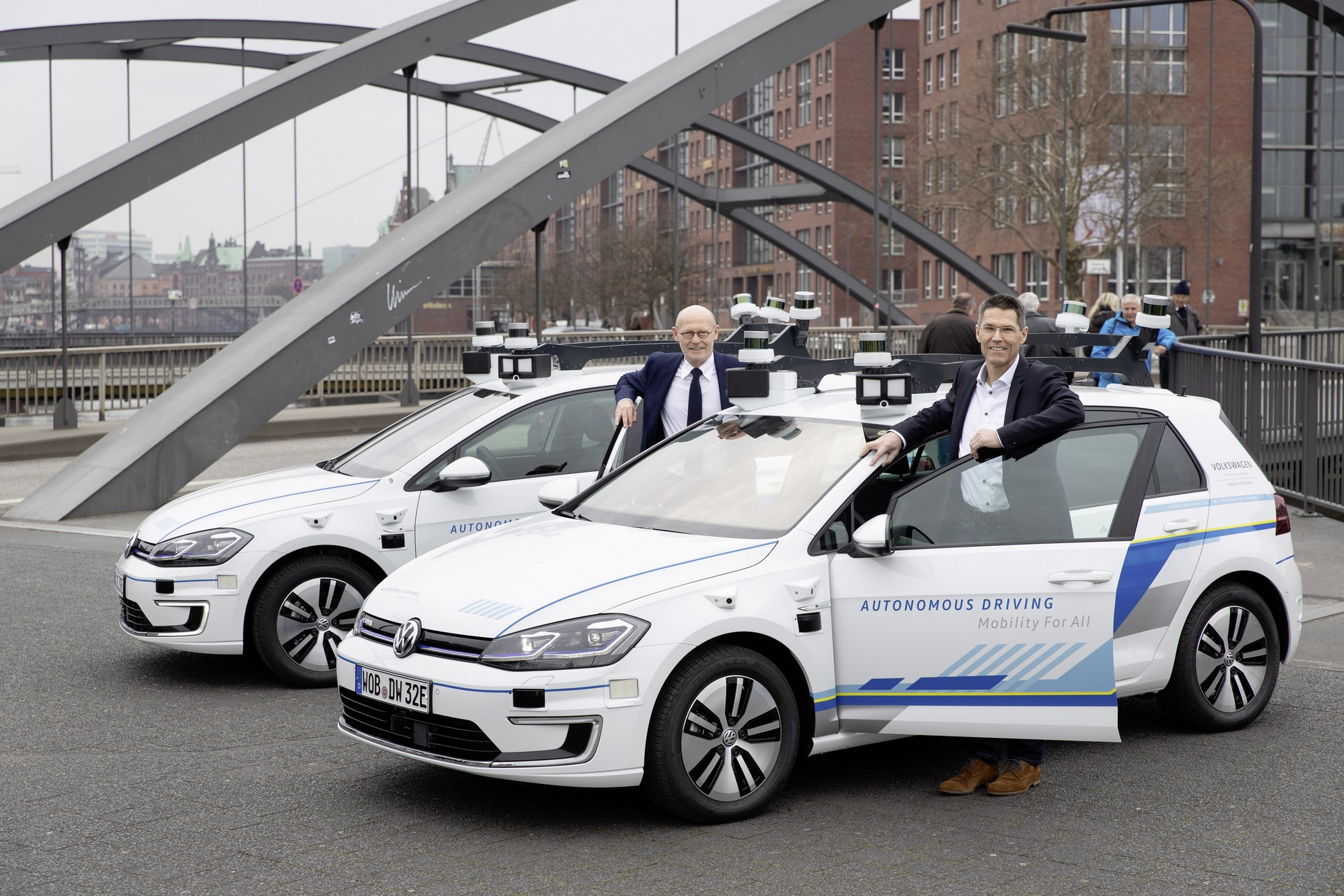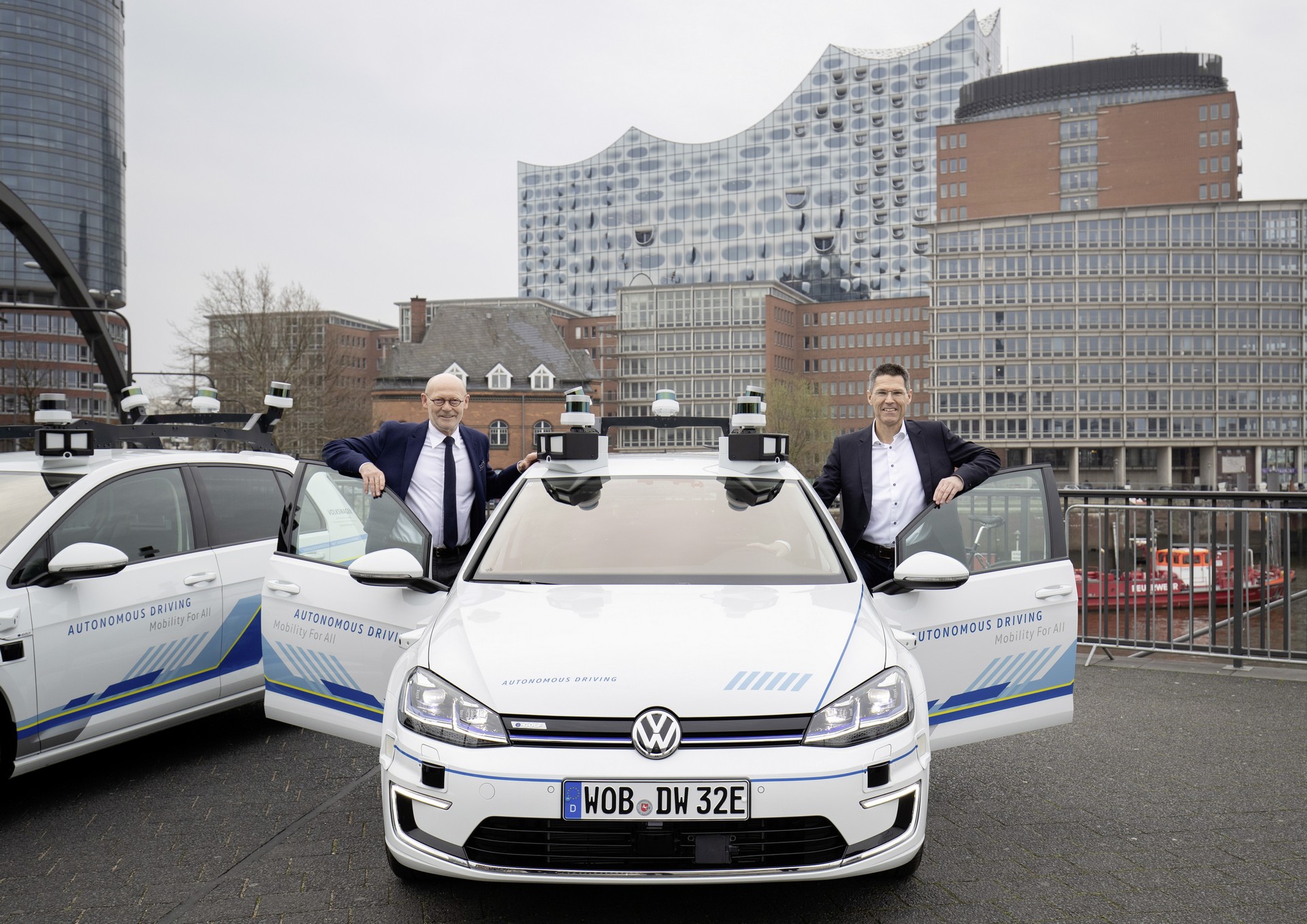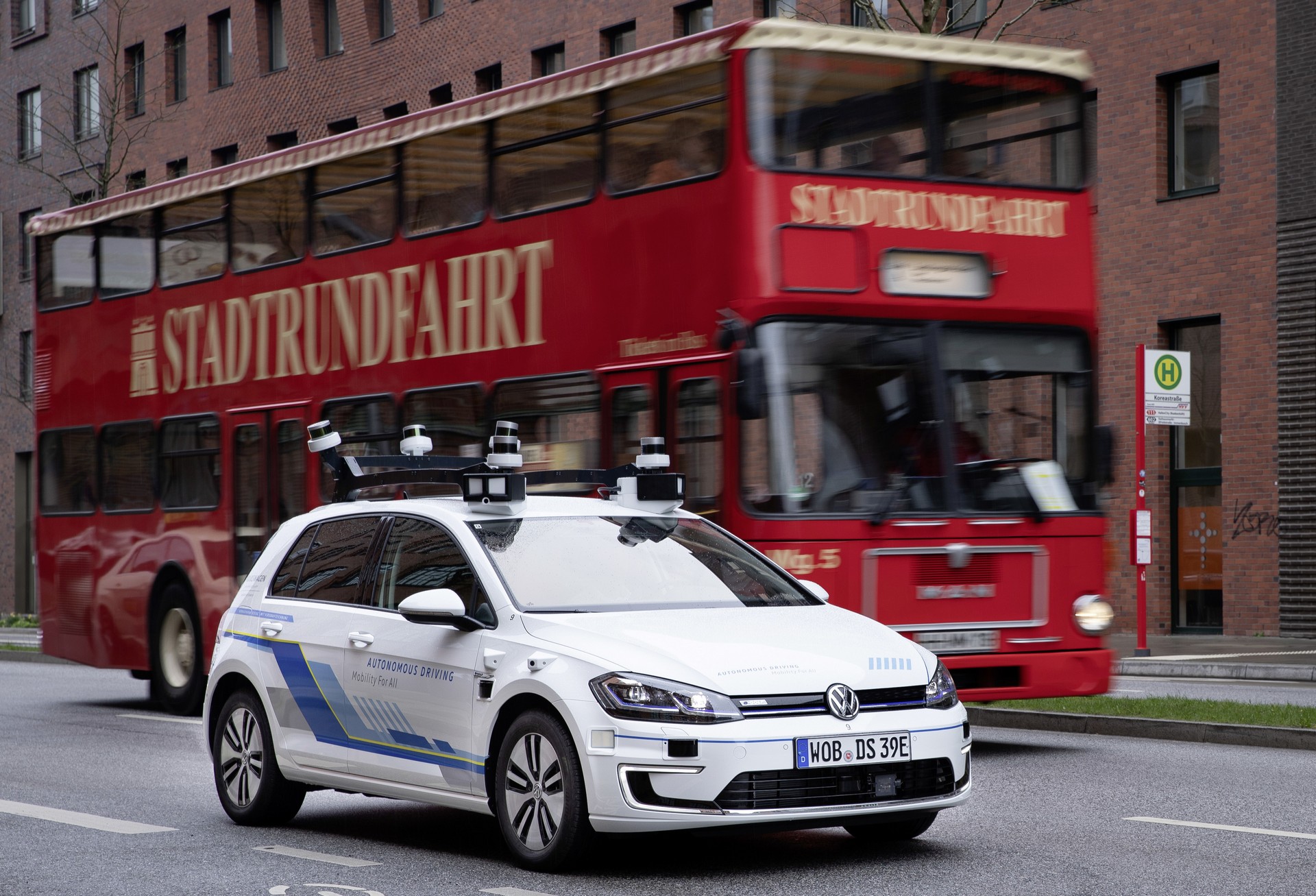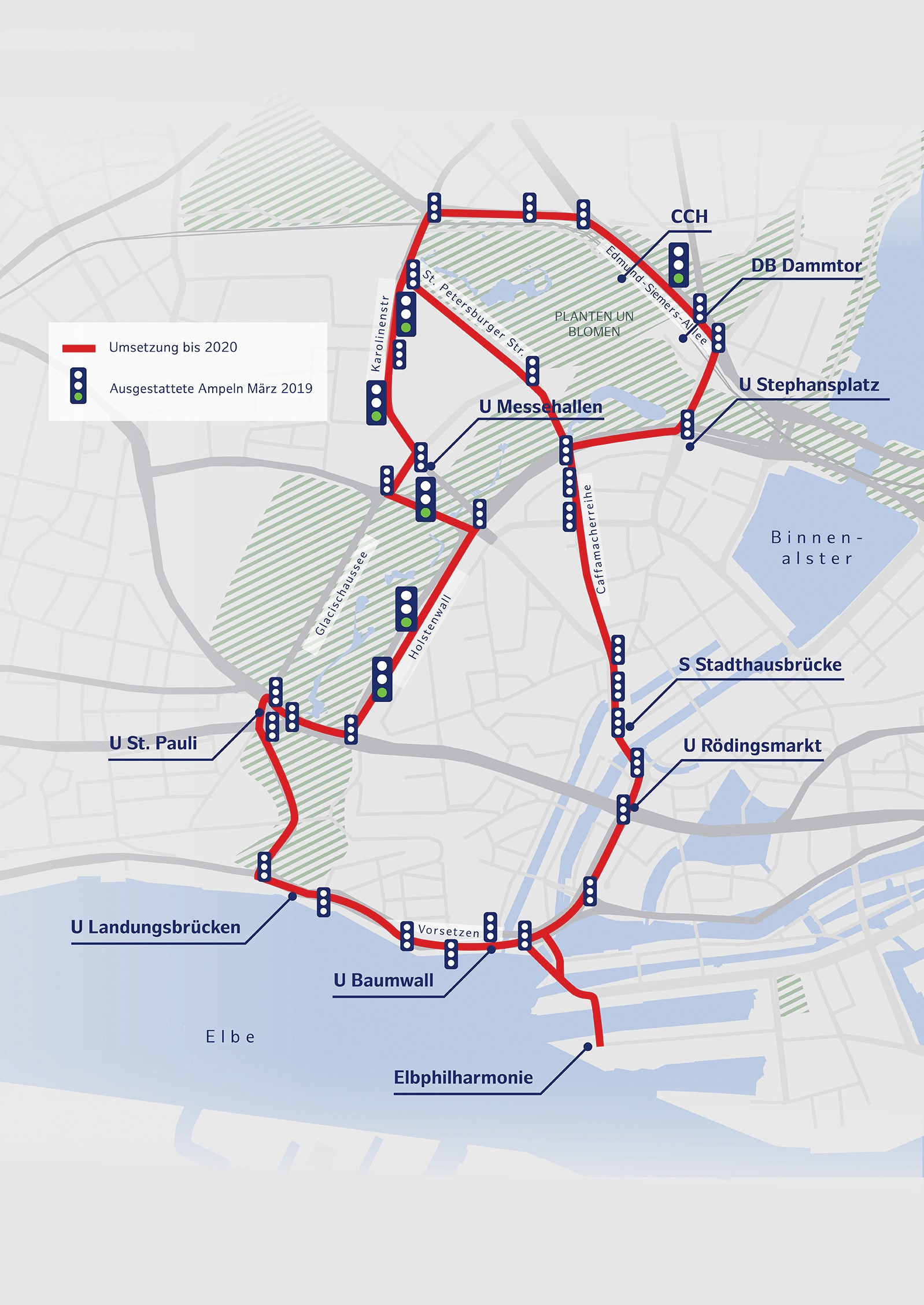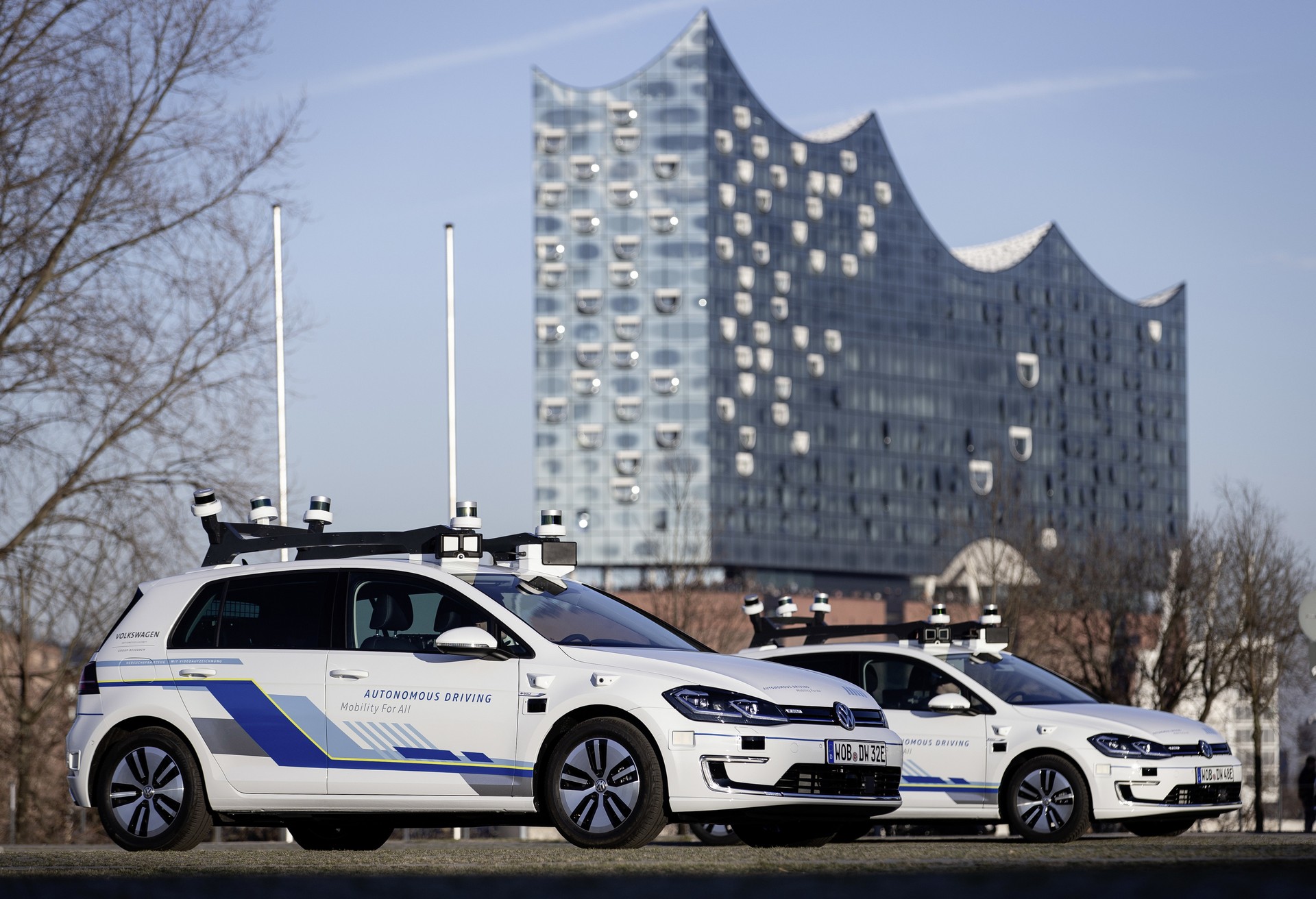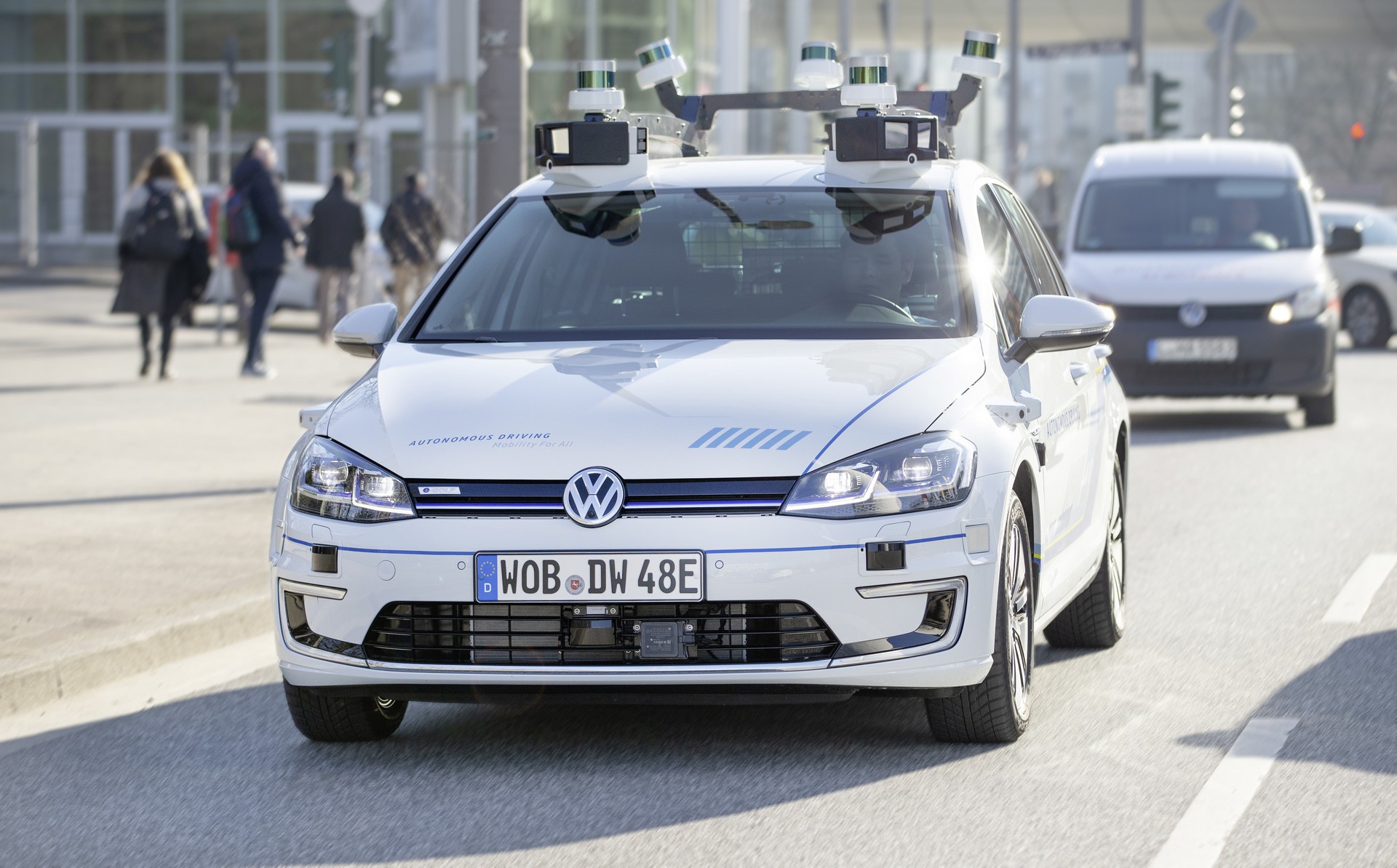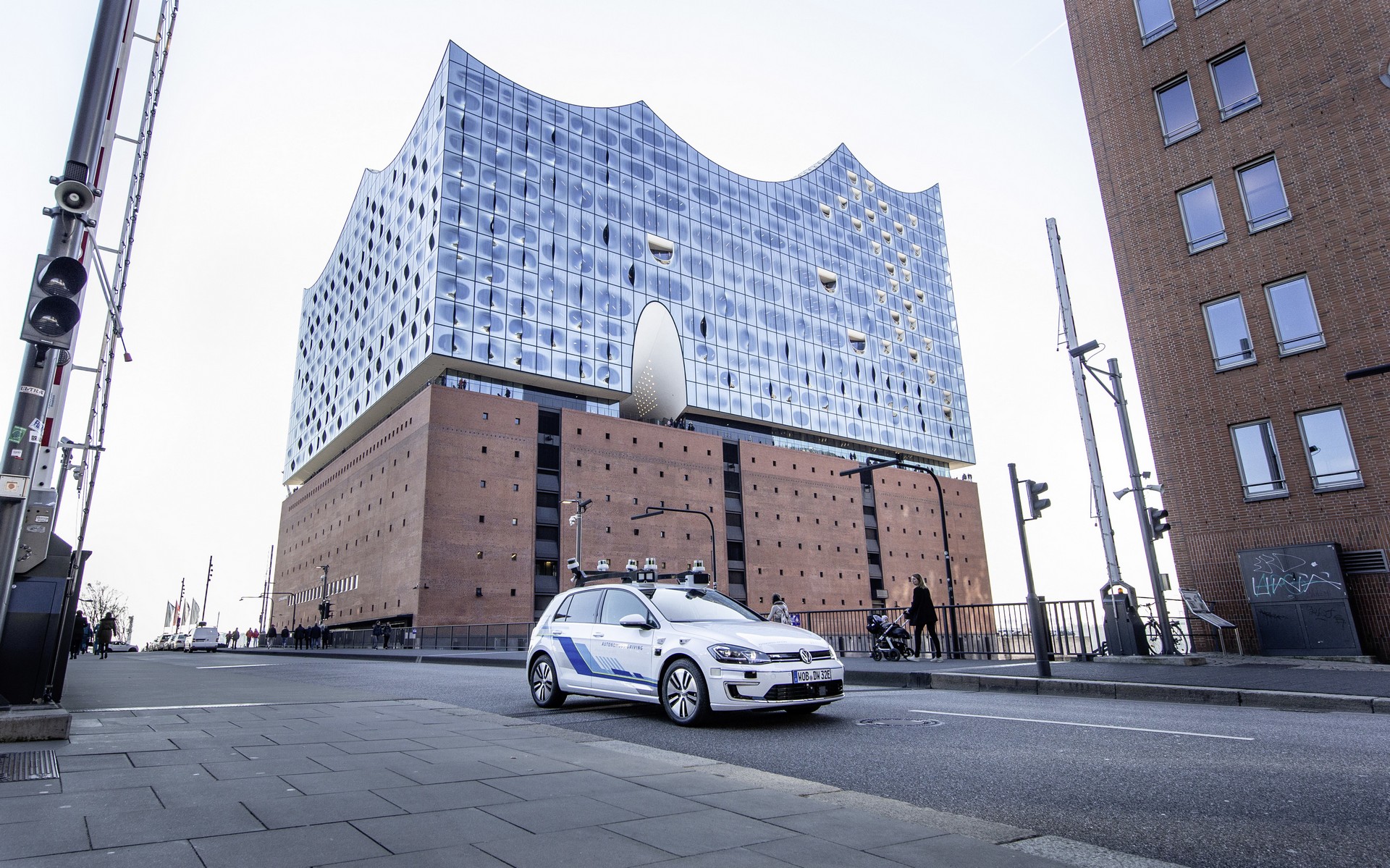The race to build the first fully autonomous vehicle continues as Volkswagen has begun testing a fleet of five e-Golfs with Level 4 technology in Hamburg, Germany.
To cope with the city’s dense urban traffic, the e-Golfs have been equipped with an impressive amount of kit. This includes 14 cameras, 11 laser scanners and seven different radars. These sensors generate up to five gigabytes of data every minute, so the cars have been outfitted with the computing power of approximately 15 laptops.
All this computing power is needed as Volkswagen explained the vehicles have to be fully aware of nearby pedestrians, cyclists, parked cars and other motorists. They also have to handle intersections, lane changes in moving traffic and more complex issues such as dealing with the right of way.
To cope with the complexities, Volkswagen is using several different types of artificial intelligence. This includes pattern recognition, deep learning and the use of neural networks.
The cars will drive on a 1.9 mile (3 km) section of roadway which has been designed as a “digital test bed for automated and connected driving.” It’s part of a larger 5.6 mile (9 km) loop which is scheduled to be completed in 2020 and will feature infrastructure-to-vehicle and vehicle-to-infrastructure technology.
While the vehicles can drive themselves in certain conditions, each will be manned by a specially trained safety driver who can intervene in an emergency. This is pretty common in the industry, but it doesn’t necessarily prevent all accidents.
Volkswagen is already learning from the test and they’ll incorporate the results of the experiment into their numerous automated driving programs. The company went on to say their goal is to offer customers “concrete products for the automated transport of goods and passengers on public roads a few years from now,” but this is largely dependent on legislative changes and the upgrading of infrastructure.
https://youtu.be/ChwAnMRLnig








